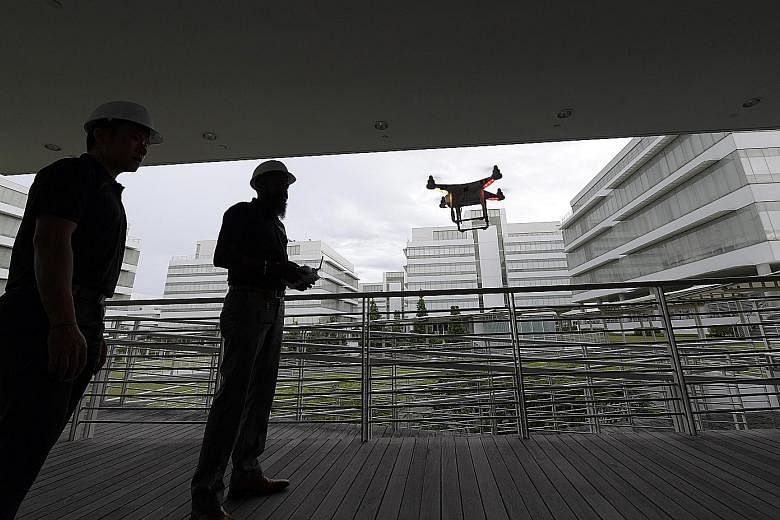Singapore has joined a 15-member group set up by the United Nations' civil aviation arm to draw up global rules and regulations for the safe use of unmanned aircraft, including drones.
The team, formed last year, comprises eight countries, including the United States, France and China, as well as industry bodies like the global pilots' association.
Singapore is an "active member" of the Unmanned Aircraft Systems (UAS) Advisory Group, a spokesman for the International Civil Aviation Organisation (ICAO) told The Straits Times.
In December last year, the group came up with an online toolkit to provide the aviation authorities and regulators with information on unmanned aircraft and how they can be safely operated.
The next step is to develop a more comprehensive global framework that will address concerns that pilots and other stakeholders might have.
"In the near future, an overhead drone delivery or even a flying taxi may enter your daily life," said the ICAO.
"It's in everyone's interest to determine sooner rather than later how and where they can safely operate, so as to minimise all related noise and privacy concerns."
The sooner this framework is agreed upon internationally, the sooner the industry will be able to align their developing UAS businesses within harmonised systems, the ICAO said.
These and other topics will be up for discussion at a symposium which will be held in Montreal, Canada, in September.
In Singapore, where the rules for operating such systems were tightened a few years ago, the Civil Aviation Authority of Singapore (CAAS) has recorded 103 violations since June 2015.
Mr Tan Kah Han, senior director for safety regulation and director for airworthiness and flight operations at the CAAS, said that such incidents typically involve flying within 5km of aerodromes, which is not allowed, and flying within restricted and security-sensitive areas without a permit.
The authority has also received four reports from pilots sighting such activity near Changi and Seletar airports.
So far, the CAAS has issued several warnings and suspended permits for some operators, Mr Tan said.
In general, permits are required for flying unmanned systems that are heavier than 7kg.
For lighter drones, approval is needed if these are operated for business purposes or within restricted zones.
Since June 2015, more than 2,300 applications for permits have been received, said the CAAS.
More than eight in 10 were for the purposes of aerial photography, videography, surveillance or inspections, Mr Tan said.
Those who operate without the required permits can be fined up to $20,000.
Repeat offenders can be fined up to $40,000 and jailed for up to 15 months.


